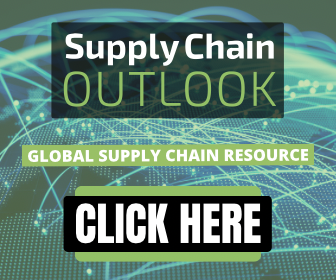Ryan Flynn, Principal at Deloitte Consulting, discusses the findings in the Deloitte Global 2021 Chief Procurement Officer Survey and his thoughts on procurement in a post-COVID world.
Gone are the days of procurement being seen as some back-office department away from all the action.
Today, it sits at the fore and dominates executives’ thoughts. And it’s had to be. In truth, procurement was already on the cusp of transformation, COVID just acted as an enabler.
Witnessing this acceleration first-hand is Ryan Flynn, Principal at Deloitte Consulting. An industry expert with over 14 years of experience helping global companies improve their sourcing and procurement efficiency and effectiveness, it’s safe to say Flynn has his finger on the pulse.
“The space was certainly challenging at first, however, the pandemic elevated procurement as a function,” says Flynn. “When COVID-19 hit, executives were suddenly turning to procurement for answers on what the impact would be on supply and for thoughts on how to offset costs to mitigate the revenue impact on the lack of demand.”
Indeed, the supply chain was at the forefront of COVID-19 disruption and those who were dependant on China in the early phases of the pandemic were some of the hardest hit. As a result, the importance of rethinking supply chain and procurement approaches to be battle-ready for any further unprecedented disruption is vital.
“What worked before won’t definitely work again,” explains Flynn. “Today, it’s about building resiliency in the supply chain, and I think procurement is at the forefront of that. I think there has been a welcome acceleration over the past few years and a drive because of the pandemic in terms of delivering more value to the organisation. There’s a lot more value that procurement can bring to companies and firms are increasingly starting to realise that.”
As part of his work, Flynn helped contribute to the Deloitte Global 2021 Chief Procurement Officer Survey. Since 2011, the survey has been providing exclusive insights into the key challenges and opportunities shaping the future of procurement. Now in its 10th year, the survey’s insights have helped members of the C-suite, procurement leaders, business partners, suppliers and supporting technology providers in furthering their ambition, strategies and performance.
“The survey has always been about checking the current state of the procurement community and executives, it’s not necessarily a benchmarking exercise,” says Flynn. “It’s intended to look into what the priorities of procurement organisations are and how they see their function moving forward. It’s about exploring what they are trying to do in terms of their strategies and how successful they have been, as well as finding out the challenges they have faced.”
In this year’s survey, the two biggest priorities for CPOs are operational efficiency and reducing costs. In terms of operational efficiency, Flynn points out two main areas.
“Firstly, building flexible but collaborative operating models and enabling these operating models through data analytics and digital solutions is key,” says Flynn.
“We’re seeing companies that are very focused on building flexibility into how they operate and offering more of an on-demand view in terms of bringing in expertise. We’re also seeing more businesses driving efficiency into how procurement operates and in how purchasing happens. There’s a greater focus on not only internal collaboration but also working with the supply base and the importance of developing a deeper relationship with key suppliers.”
The other key area for CPOs is through the reduction of costs. On the back of the disruption of COVID, companies were focused on how they could match the reduction in revenue with decreased costs.
“We are seeing a bit of a shift in terms of not just focusing on the supply side of cost production but also on the demand side,” explains Flynn. “This will also be a challenge moving forward because the supply side is very constricted. It’s a change from a traditional focus on the supply side and price towards a broader focus on how we solve that demand side of the equation now. As a lot of industries emerge from this, the focus is very much on top-line growth which will mean that it will be harder to control demand.”
Moving forward, Flynn believes the procurement space will transition from the traditional focus on cost reduction.
“If you look closely enough, this shift was already starting to happen, but it has been accelerated by some of the ways the pandemic exposed the lack of visibility many organisations have in their supply chains,” he discusses. “We are seeing more of our clients that are focused on how they improve their multi-tier supply chains and are becoming more proactive with spotting and managing risks.
“It is also important to put the right types of strategic contingency plans because if something unforeseen does happen, there’s a Plan B in place and an alternative source of supply. I think we will see procurement organisations focus on becoming more agile to help companies drive that innovation.”
You can check out Deloitte’s Global 2021 Chief Procurement Officer Survey here!




















